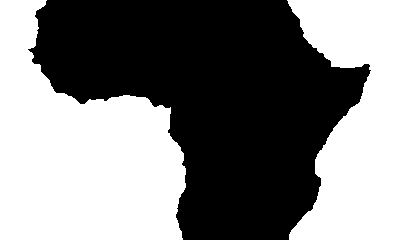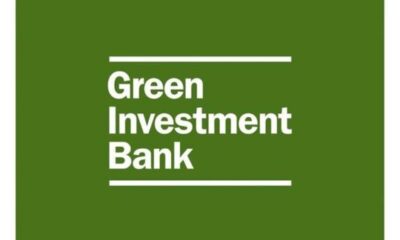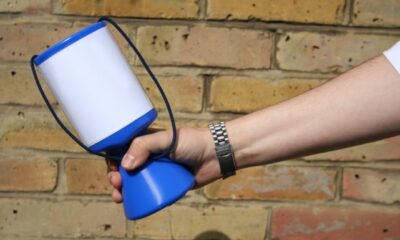Features
Alquity – An Investment Model with a Heart
David Tebbutt gives us the lowdown on Paul Robinson’s fund that helps Africans.
Not so long ago, you’d have wondered who on earth would want to invest in countries like Brazil, China, Russia or India. Yet, in the past decade, they’ve developed quite remarkably. Now, despite the problems in North Africa, some would say that Africa as a whole offers fantastic development potential.
David Tebbutt gives us the lowdown on Paul Robinson’s fund that helps Africans.
Not so long ago, you’d have wondered who on earth would want to invest in countries like Brazil, China, Russia or India. Yet, in the past decade, they’ve developed quite remarkably. Now, despite the problems in North Africa, some would say that Africa as a whole offers fantastic development potential.
The Alquity Group, established 11 years ago, believes this to be the case and has started an Africa fund to help investors and ordinary Africans benefit from its activities. Not only does it invest in African companies and companies whose main business is in Africa, but it also donates a minimum of 25 percent of its management and performance fees to microfinance initiatives run by Opportunity International. Alquity Chairman Paul Robinson believes its fee structure is mid-range compared with similar operations, meaning that investors aren’t penalised for doing good.
Alquity’s investments are highly liquid – 90 percent of its holdings could probably be sold in three days and the remainder in a few more. It invests in substantial organisations with good prospects and is careful about which parts of Africa it considers. At the moment it’s investing in 11 of the 54 countries that make up the continent, the land area of which is so large it exceeds that of the USA, China, the EU and India combined.
According to the US Geological Survey, Africa has 89 percent of the world’s platinum, 74 percent of its chrome, 60 percent of its diamonds, 51 percent of its phosphates, 12 percent of its oil and 9 percent of its natural gas. And the figures for the last two are likely to be a gross understatement, as new discoveries are being made all the time.
The altruistic angle isn’t new to Alquity – the firm’s name is a blend of ‘altruism’ and ‘equity’. Its primary purpose is to deliver attractive returns regardless of ethics or social concerns. But then it believes in transforming lives through donations and sustainable investments. It takes its prospects’ environmental, social and corporate governance (ESG) stance into account, not least because it leads to better returns. It also takes RiskMetrics company ratings into consideration.
Paul Robinson is the mastermind behind this operation. He is also a trustee of the One Foundation and its trading arm, Global Ethics. He’s a serial entrepreneur who believes in ‘profit for a purpose’. The One Foundation sells condoms and uses the profits to fund HIV/AIDS projects in Africa. Profits from its bottled water help fund ‘play pumps’, which are roundabouts that pump water up into accessible storage from deep underground. In each case, the connection between purchased product and benefit in Africa is clear. The same goes for investment funds and microfinance – there’s a strong resonance between the two.
It’s early days for the fund, launched in the UK and Europe last June. While the parent group manages $130m in funds, Alquity Africa has so far grown from $1m to $5.14m. Robinson is on record as hoping to create 100,000 jobs in Africa by 2012. A sustainable job costs around £60 to create and each job supports around five people. Since performance fees don’t materialise until mid-year, it’s not really possible to measure progress towards that goal yet.
On the subject of giving investment advice, when pressed, Robinson said, “What investors choose to do depends on their risk profiles. But ask yourself about the prospects of Europe and the USA by comparison with developing countries.” He illustrated this with charts showing returns between 2000 and 2010, based on Bloomberg figures. The MSCI Developed Markets grew 32 percent while the Emerging Markets grew 350 percent. Both dipped substantially in 2007/8 but the Emerging Markets has made a slightly stronger recovery. Alquity is banking on the African markets performing in a similar way, recommending investment for at least three to five years.
The company’s top 10 holdings at the end of December represented about a third of the portfolio. In order of size, these were in South Africa, Nigeria, Egypt, Zambia and Ghana. Egypt is the only one that has been subject to recent upheavals. In sector sequence they were telecommunications, materials, energy, banks, food retailing, media and pharmaceuticals.
Investors, in theory, can do themselves and others good with very little effort. To pinch a phrase from Robinson, it’s “armchair philanthropy”.


 Environment12 months ago
Environment12 months agoAre Polymer Banknotes: an Eco-Friendly Trend or a Groundswell?

 Features11 months ago
Features11 months agoEco-Friendly Cryptocurrencies: Sustainable Investment Choices

 Features12 months ago
Features12 months agoEco-Friendly Crypto Traders Must Find the Right Exchange

 Energy11 months ago
Energy11 months agoThe Growing Role of Solar Panels in Ireland’s Energy Future






























